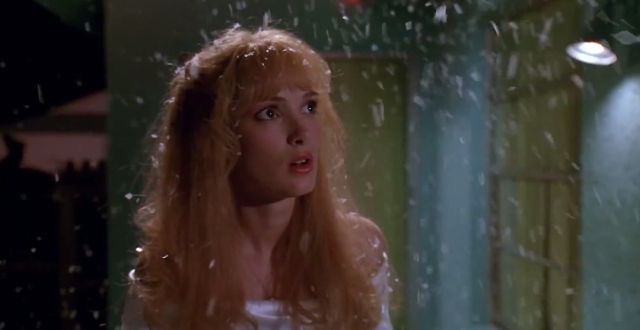Season’s Greetings For Mental Illness: Why We Need To Talk About Seasonal Depression
December 13, 2016
Jingle bells ringing, snowflakes dancing on through the air, it is the holidays and we are in a time of expected happiness. The season brings a sense of smiles and community, you fall into humming festive melodies and have a skip in your step. It seems the whole world is lit from the inside out. Now, imagine the holiday cheer, the lights, the glow all inside a snowglobe with you on the outside. You watch through transparent glass everyone experience this picturesque happiness, you hold joy in your palms but you can’t be a part of it, a thick separation stands in the way of letting you be a part of that world and you become stuck as an observer of a story you wish to be a part of. This feeling, the thick glass layer that exists between experiencing happiness during the winter months and feeling like a bystander has a name listed in the DSM under Seasonal Affective Disorder, or more commonly known as seasonal depression.
Seasonal depression actually, like all mental illnesses, is caused by something within the human brain and though very connected to an emotional state of being, is due to a chemical imbalance. Seasonal affective disorder (SAD) “is a type of depression that’s related to changes in seasons — SAD begins and ends at about the same times every year. If you’re like most people with SAD, your symptoms start in the fall and continue into the winter months, sapping your energy and making you feel moody.” SAD usually occurs for most people in fall and remains during the winter months, most likely due to the lack of light exposure during this time. Symptoms usually fall into the same as more general depression but SAD is linked to overeating (carbohydrates especially), a lathargic nature with increased sleeping patterns, and gaining weight during a spell of a few months’ time.
The holidays are supposed to be happy times, the snow is magical, and the weather is enchanting, so why talk about the sad things? The fact of the matter is it is important to acknowledge that mental illness doesn’t celebrate and it doesn’t take vacations. The stigma surrounding mental illness makes it a topic not to discuss and to put away at family dinners, to just act normal and not make a scene. Unfortunately, the holidays can’t be the most wonderful time of the year if you never feel like you can move beyond your mattress, no matter the positivity you try to press into you. I asked some students who are open about having to deal with this mental illness and one said, “The misconceptions about depression in our school are concerning to me, too many people see “depressed” and “sad” as synonyms when in reality, depression is not just a feeling, it’s a monster that hides inside of your head and never goes away. It turns all good days into bad ones and is not something that can simply be controlled. The immense pressure put on everyone around the holidays to be happy and enjoy time with loved ones can make the pain even worse.” says MCHS junior Daniel Cruse.
Becoming informed is one thing but being sympathetic and understanding towards someone is another step. During this time, keep in mind to spread joy and be considerate of everyone’s hearts and well-being this holiday season. Don’t be afraid to reach out and look to care for yourself and others around, even if it means just letting them cry a bit and taking them to get a coffee and cookie. The best thing to do is to love.












